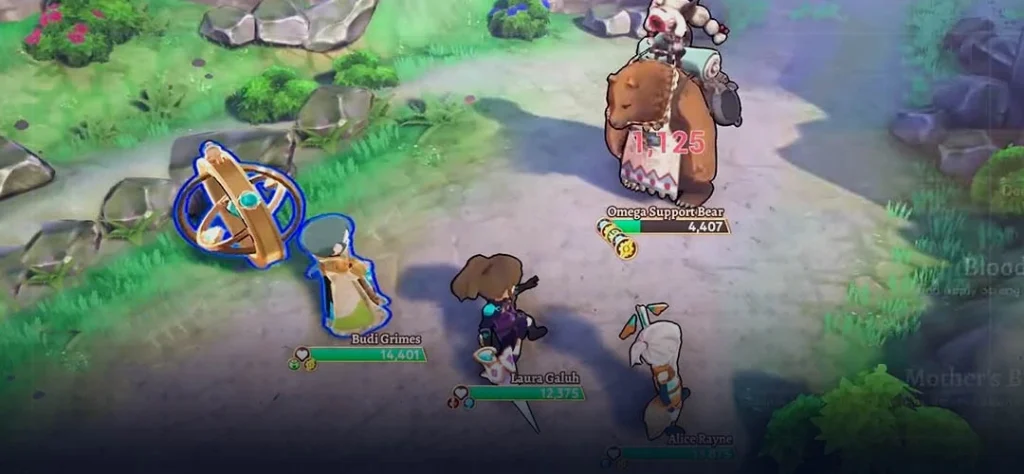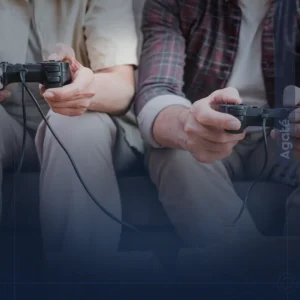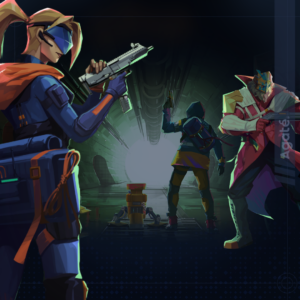
In the vast landscape of gaming, turn-based games stand out as a unique genre that demands cunning strategy and careful planning. From classic board games like chess to immersive digital experiences, turn-based games have captured the hearts of players worldwide. In layman’s terms, Turn-based games are a genre of video games that require players to take turns when performing actions, such as moving, attacking, or using items. But unlike real-time games, where events happen continuously and simultaneously, turn-based games allow players to plan their moves carefully and execute them at their own pace. This genre of games is often associated with strategy and role-playing games, but they can also be found in other genres, such as puzzle, board, card, and simulation games.
It’s essential to understand the distinction between roguelike and roguelite games. Traditionally, roguelike games were defined by their turn-based gameplay, grid-based movement, and permanent character death, among other characteristics. These games were often known for their high difficulty, complex systems, and deep mechanics.
On the other hand, roguelite games take inspiration from roguelikes but incorporate certain modifications and additions. While they retain elements like procedurally generated levels and permadeath, roguelites introduce more forgiving mechanics, such as persistent progression, unlockable upgrades, and a stronger focus on action-oriented gameplay. This subtle shift opens up the genre to a wider audience, making it more accessible and engaging for players who may not be accustomed to the extreme challenge of traditional roguelikes.
What is a turn-based game?
For a more specific definition, a TBG or turn-based game is a game that divides the gameplay into discrete segments or phases called turns. Each turn, one or more players (or computer-controlled entities) can perform a limited number of actions, such as moving on a grid, selecting an option from a menu, or rolling a die or dice. The game then switches to the next player’s turn, and so on. The game progresses in sequential order until a certain condition is met, such as reaching a goal, defeating an enemy, or running out of time.
Turn-based games are different from real-time games, where events happen continuously and simultaneously. In real-time games, players require to react quickly and make decisions on the fly. In turn-based games, players have more time to think and strategize before making a move. Turn-based games are also different from hybrid games, where some elements are turn-based, and some are real-time. For example, some role-playing games use turn-based combat but real-time exploration.
The origins of turn-based games?
Turn-based games have a long history that can be traced back to ancient board games and tabletop games. Some of the earliest examples of turn-based games are chess, checkers, and backgammon. These games involve moving pieces on a board according to predefined rules and taking turns with an opponent. These games are still popular today and have influenced many modern video games.
The first video games that used turn-based mechanics were text-based adventure games and strategy games. These games were developed in the 1970s and 1980s for personal computers and consoles. Some of the pioneers of these genres are Colossal Cave Adventure (1976), Zork (1977), Rogue (1980), and Ultima (1981). These games introduced elements such as exploration, combat, inventory management, character creation, and world-building.
In the late 1980s and early 1990s, turn-based games became more popular with the rise of role-playing games and tactical games. These games combined turn-based combat with story-driven narratives and character development. It expanded the scope and depth of turn-based gameplay and introduced features such as branching paths, multiple endings, permadeath, and customization. As this genre continues to evolve, there are numbers of aspects that make a turn-based games:
Tactical Decision-Making
In turn-based games, victory hinges on the ability to make wise decisions in the face of uncertainty. Players must evaluate their options, analyze the game state, and anticipate their opponent’s moves. Every action becomes a calculated move in a larger chessboard, requiring strategic foresight and adaptability. This tactical decision-making element is what makes turn-based games intellectually stimulating.
Roguelite games have found a special place among indie game studios due to their alignment with limited resources and the desire for replayability. Procedural generation allows indie developers to create vast and diverse game worlds efficiently, while permadeath and emergent gameplay foster discovery and personalization. The focus on gameplay mechanics enables indie studios to showcase their creativity and unique design choices, setting them apart in the competitive market.
It’s worth noting that roguelite games have also attracted interest from more prominent game developers, as demonstrated by Agate’s collaboration on the game Mythic Protocol. This condition exemplifies the genre’s broad appeal and potential to captivate industry players. As the popularity of roguelite games continues to grow, we can expect more exciting and innovative titles to emerge, captivating gamers with their challenging yet rewarding experiences.
Resource Management
Turn-based games often incorporate resource management as a central mechanic. Players must efficiently allocate limited resources, such as currency, time, or units, to achieve their objectives. Whether it’s gathering resources, upgrading abilities, or maintaining an army, the careful management of resources becomes paramount to success. This adds another layer of complexity and strategic depth to the gameplay.
Roguelite games have found a special place among indie game studios due to their alignment with limited resources and the desire for replayability. Procedural generation allows indie developers to create vast and diverse game worlds efficiently, while permadeath and emergent gameplay foster discovery and personalization. The focus on gameplay mechanics enables indie studios to showcase their creativity and unique design choices, setting them apart in the competitive market.
It’s worth noting that roguelite games have also attracted interest from more prominent game developers, as demonstrated by Agate’s collaboration on the game Mythic Protocol. This condition exemplifies the genre’s broad appeal and potential to captivate industry players. As the popularity of roguelite games continues to grow, we can expect more exciting and innovative titles to emerge, captivating gamers with their challenging yet rewarding experiences.
Risk and Reward
Balancing risk and reward is a crucial aspect of turn-based games. Players must weigh the potential benefits against the inherent risks before making critical decisions. Choosing between defensive or aggressive moves, sacrificing short-term gains for long-term advantages, or assessing the odds of success—all contribute to the adrenaline-inducing nature of turn-based gameplay.
Synergies and Combos
Many turn-based games incorporate synergies and combos, allowing players to combine different abilities or units to create powerful strategies. The discovery of synergistic interactions adds an exciting puzzle-like element to the gameplay, encouraging players to experiment and find unique combinations. Unleashing a perfectly executed combo can be immensely satisfying and provide a decisive advantage.
Progression and Character Development
Turn-based games often feature progression systems that allow players to develop their characters or armies over time. Through experience points, leveling up, or acquiring new equipment, players can enhance their abilities and unlock new strategic options. This sense of growth and progression serves as a motivating factor, keeping players engaged and invested in the game world.
What are the sub-genres of turn-based games?
Turn-based games can be classified into several sub-genres based on their gameplay mechanics and themes. Some of the most common sub-genres are:
Turn-based strategy (TBS)
TBS are games that focus on strategic planning and resource management over a large-scale map or scenario. Players have to control units or factions and compete with other players or AI for territory, resources, or objectives.
Turn-based tactics (TBT)
TBT are games that focus on tactical combat and positioning over a smaller-scale map or battlefield. Players have to control individual units or squads and engage in battles with enemies using weapons, skills, or items.
Turn-based role-playing games (TRPG)
TRPG are games that combine elements of role-playing games and turn-based combat. Players have to create and customize characters, follow a story, and participate in battles with enemies using stats, skills, or items.
Turn-based puzzle game
These are games that involve solving puzzles or logic problems using turn-based mechanics. Players have to manipulate objects or symbols on a grid or board according to certain rules or goals.
Turn-based card game
These are games that involve playing cards or collecting cards using turn-based mechanics. Players have to build decks of cards and use them to compete with other players or AI in various modes or scenarios.
Agate’s Turn-Based Game: Valthirian Arc Hero School Story 2
What makes a good turn-based game?
Turn-based games can offer a variety of experiences and challenges for players, depending on their design and implementation. However, some general principles that can make a turn-based game good are:
Balance
A good turn-based game should have a balanced gameplay system that ensures fairness and fun for all players. The game should avoid having overpowered or underpowered units, abilities, or strategies that can ruin the game’s challenge or enjoyment. The game should also have a balanced difficulty curve that adapts to the player’s skill level and progress.
Depth
They also need to have a deep gameplay system that offers meaningful choices and consequences for the players. The game should have multiple options and variables that affect the outcome of each turn, such as terrain, weather, morale, equipment, etc. The game should also have a rich and diverse content that provides variety and replayability, such as different modes, scenarios, factions, units, etc.
Feedback
They should have a clear and intuitive feedback system that informs the players of the game’s state and results. The game should have a user-friendly interface that displays the relevant information and options for each turn, such as stats, skills, items, etc. The game should also have a responsive and engaging presentation that shows the effects and consequences of each action, such as animations, sounds, texts, etc.
Creativity
A Creative gameplay system is important to encourage experimentation and innovation for the players. The game should have a flexible and dynamic system that allows the players to create their own strategies and solutions, such as customization, modding, sandboxing, etc. The game should also have a unique and original theme that distinguishes it from other games in the genre, such as setting, story, art style, etc.
At Agate, we have developed several turn-based game such as Valthirian Arc game, which was released in 2018 and Code Atma which was released in 2020. The Valthirian Arc game combines elements of RPG and simulation genres, allowing players to manage their own hero school and train students for various quests and battles. Unlike the first game, which used real-time combat, the sequel features turn-based combat as a major gameplay change.
Conclusion
The world of turn-based games offers a captivating and strategic gaming experience that has captivated players for decades. Whether it’s the timeless classics like chess or the immersive digital adventures, turn-based games require careful planning, tactical decision-making, resource management, and risk assessment. These games have evolved from ancient board games to sophisticated video games, incorporating elements like progression, character development, synergies, and combos. The sub-genres of turn-based games, including strategy, tactics, role-playing, puzzle, and card games, cater to various preferences and provide unique challenges. A good turn-based game is characterized by balance, depth, feedback, and creativity, providing an engaging and rewarding experience.
Are you looking for co-development, art services, or game porting? Look no further than Agate!
Don’t hesitate to get in touch with us today and learn more about how we can help you take your project to exceptional heights.







